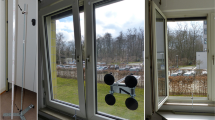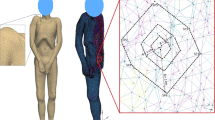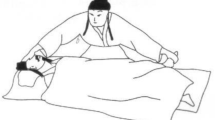Abstract
The accuracy of the input parameter values limits the accuracy of the output values in forensic temperature-based death time estimation (TDE) like in many scientific methods. A standard strategy to overcome this problem is to perform multiple measurements of the input parameter values, but such approaches are subject to noise accumulation and stochastic dependencies. A quantitative mathematical analysis of advantages as well as disadvantages of multiple measurements approaches (MMAs) was performed. The results are
-
A general stochastic model of MMA.
-
The information degradation inequality quantifying gains and losses of MMAs.
-
Example calculations of the information degradation inequality for the following two MMAs relevant to TDE:
-
o Multiple successive rectal temperature measurements
-
o Multiple synchronous body layer temperature measurements
Neither multiple successive rectal temperature measurements nor multiple synchronous body layer temperature measurements seem to significantly improve death time estimation. MMAs are superior to the single measurement approach only in the very early body cooling phase.
Similar content being viewed by others
References
Marshall TK, Hoare FE (1962) Estimating the time of death. The rectal cooling after death and its mathematical expression. J Forensic Sci 7:56–81
Henßge C, Madea B (1988) Methoden zur Bestimmung der Todeszeit an Leichen. Schmidt-Römhild, Lübeck
Henßge C (2002) Todeszeitbestimmung an Leichen. Rechtsmedizin 12:112–131. doi:10.1007/s00194-002-0136-8
Henßge C (1979) Die Präzision von Todeszeitschätzungen durch die mathematische Beschreibung der rektalen Leichenabkühlung. Z Rechtsmed 83:49–67
Stipanits E, Henßge C (1985) Präzisionsvergleich von Todeszeitrückrechnungen aus der Rektaltemperatur ohne und mit Berücksichtigung von Einflussfaktoren. Beitr Gerichtl Med 43:323–329
Henßge C (1981) Todeszeitschätzungen durch die mathematische Beschreibung der rektalen Leichenabkühlung unter verschiedenen Abkühlungsbedingungen. Z Rechtsmedizin 87:147–178
Hubig M, Muggenthaler H, Mall G (2011) Influence of measurement errors on temperature-based death time determination. Int J Legal Med 125(4):503–517. doi:10.1007/s00414-010-0453-5
Hubig M, Muggenthaler H, Sinicina I, Mall G (2011) Body mass and corrective factor: impact on temperature-based death time estimation. Int J Legal Med 125(3):437–444. doi:10.1007/s00414-011-0551-z
Muggenthaler H, Sinicina I, Hubig M, Mall G (2012) Database of post-mortem rectal cooling cases under strictly controlled conditions: a useful tool in death time estimation. Int J Legal Med 126:79–87
Papoulis A (1990) Probability & Statistics. Prentice-Hall, Englewood Cliffs, New Jersey
Demierre N, Wyler D, Zollinger U, Bolliger S, Plattner T (2009) Elevated body core temperature in medico-legal investigation of violent death. Am J Forensic Med Pathol 30(2):155–8
Mall G, Eckl M, Sinicina I, Peschel O, Hubig M (2005) Temperature-based death time estimation with only partially known environmental conditions. Int J Legal Med 119(4):185–194
Author information
Authors and Affiliations
Corresponding author
Ethics declarations
Conflicts of interest
The authors declare that they have no conflict of interest.
Ethical approval
This article does not contain any studies with human participants or animals performed by any of the authors.
Electronic supplementary material
Below is the link to the electronic supplementary material.
ESM. 1
(PDF 354 kb)
Rights and permissions
About this article
Cite this article
Hubig, M., Muggenthaler, H., Schenkl, S. et al. Do multiple temperature measurements improve temperature-based death time estimation? The information degradation inequality. Int J Legal Med 130, 1243–1251 (2016). https://doi.org/10.1007/s00414-016-1323-6
Received:
Accepted:
Published:
Issue Date:
DOI: https://doi.org/10.1007/s00414-016-1323-6




